Friends of America’s most mysterious bank thief speak out: ‘It was less about the money, than proving he could do it’
Russell Metcalf believes his friend always planned to put the money back, writes Andrew Buncombe

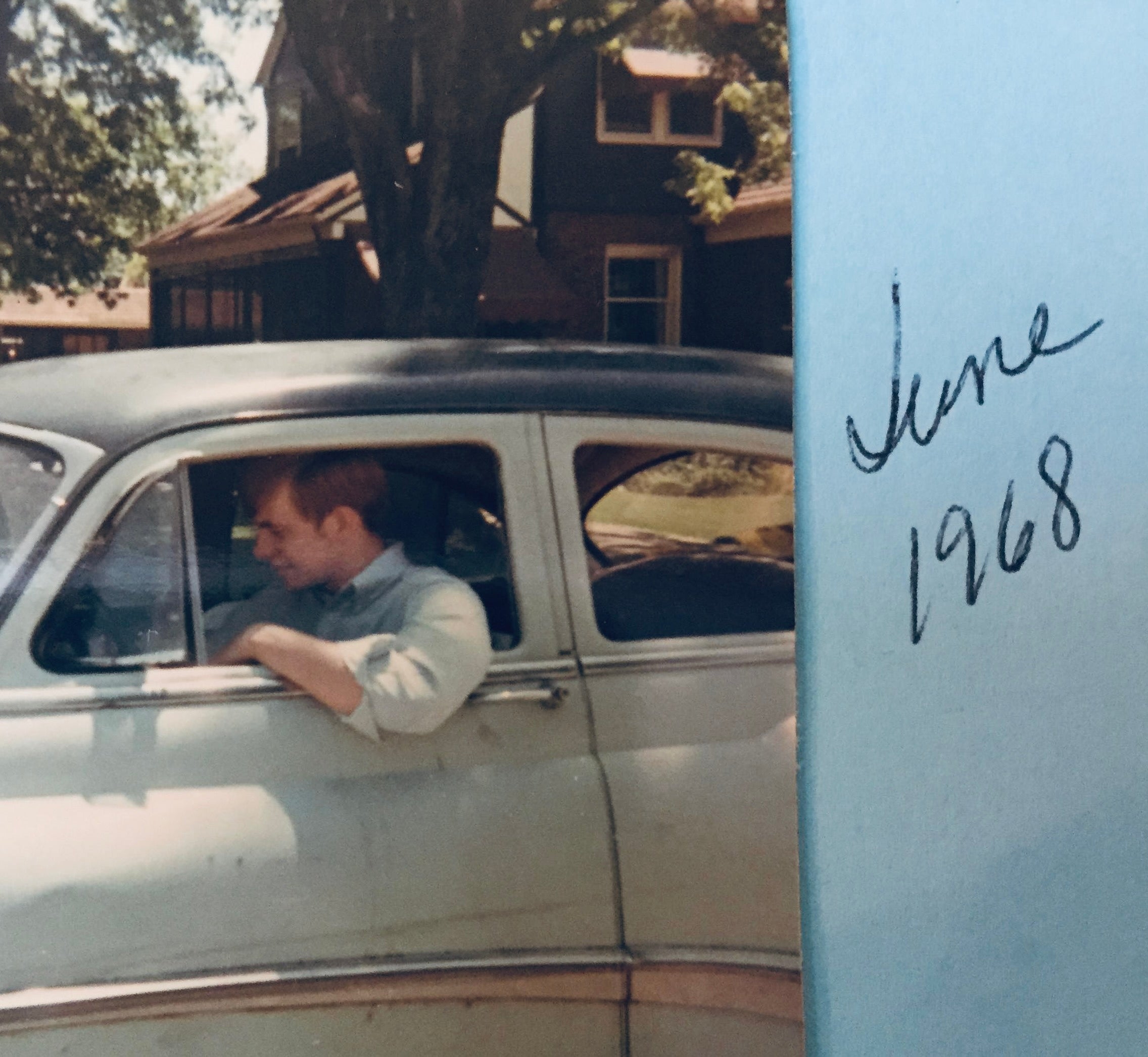
There was a period in his life when Russell Metcalf considered Ted Conrad his best friend.
This was the 1960s, after the pair had met at Lakewood High School, west of Cleveland. Both of them played American football – both were linebackers – but not well enough to make the first team. Each had come to Lakewood from somewhere else. They were outsiders.
“There was something. We just hit it off,” says Metcalf, now aged 72. “We met at school, but then we started socialising outside as well.”
On Friday 11 July 1969, the pair had lunch at Flaming Embers, a restaurant that no longer exists, but where they liked the burgers. It was conveniently located close to two different banks in which they worked. They made a plan to play golf the following afternoon.
As it was, not Metcalf or anyone else from his circle of friends, would see Conrad again. That evening, the 20-year-old, who had access to the vault of the Society National Bank, walked out of work with $215,000 in a paper bag. He then disappeared, setting in motion a manhunt by the FBI and US Marshals Service that would stretch over 50 years.
The mystery was recently explained when it was revealed Conrad had spent the last half-century living in the Boston suburbs under a false name, Thomas Randele. His wife Kathy, and their daughter, Ashley, only learned of his real identity when he confessed to them last May, shortly before he died of cancer.
‘We all loved Steve McQueen. He was just cool’
Just as friends and relatives of “Thomas Randele” in Lynnfield, Massachusetts, have been trying to absorb their shock about a man universally described as kind and generous, so too have the people in Lakewood, who also knew him as a friendly, warm young man, and have for decades been wondering what became of him.
Nobody more so than Russell Metcalf, who later left Lakewood and settled in Texas.
“Ted was born in Colorado and he moved to Cleveland. He moved to Lakewood in his sophomore year. I moved to Lakewood in my junior year but we met on the football field,” says Metcalf, who has retired from a career in financial services, and part-time acting. “At the time, he was probably the closest male friend I’d ever had.”
Metcalf says Conrad was much taken by the 1968 film The Thomas Crown Affair, starting Steve McQueen and Faye Dunaway. He saw it at least half-a-dozen times.
“Back then, we all loved the movie. We loved Steve McQueen. He’s a racing car driver, and he was just cool,” he says.
“McQueen’s wearing a three-piece suit and he drives fast cars. Ted loved the the movie, and he thought what a great life McQueen had.”
Conrad was so impressed by the film that he persuaded his grandmother to lend him the money for an MG Midget, painted bright red, with a black interior. He bought a pair of expensive leather driving gloves.
Not to be outdone, Metcalf purchased an Austin-Healey Sprite. His girlfriend at the time, was studying in the city of Bowling Green, a 100 miles west, and the pair would take road trips. “We just had a great time. It was fun.”
Metcalf, who spent time in the US Air Force, says Conrad often talked about how easy it would be to take money from the bank. All he needed to do was to create a situation in which he was left alone in the vault, a breach of the bank’s rules.
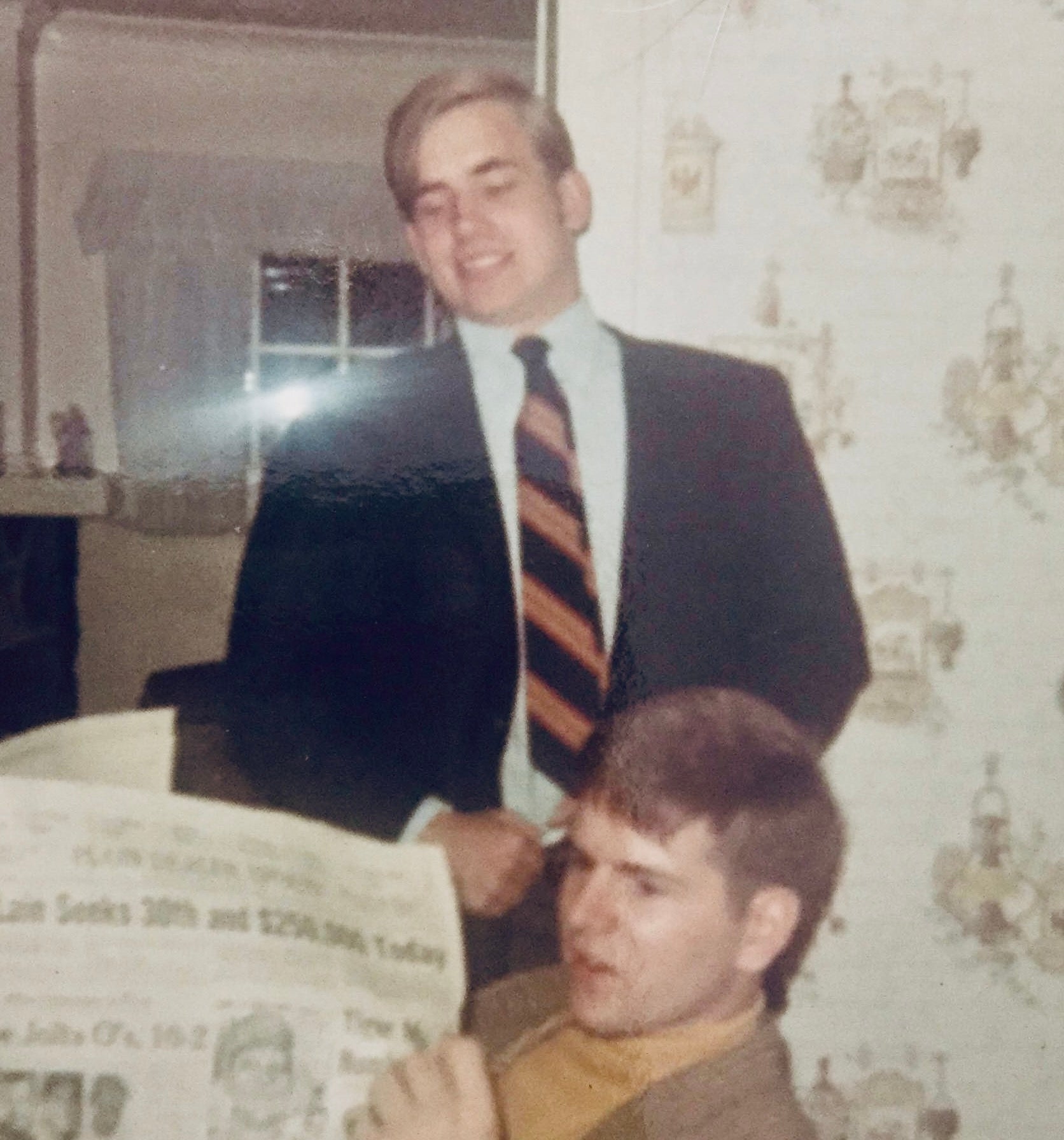
The evening of the theft, says Metcalf, Conrad had called him at home but he was out, and he spoke to his mother.
“I still believe had he been able to speak to me or someone else, and showed us the money, he would have just put it back on Monday morning,” says Metcalf. “For it was less about the money, than proving he could do it.”
As it was, Conrad did not return to work, and two days later Metcalf got a call from someone at the Society National Bank, asking him to go to his own place of work straight away. When he arrived, he was confronted by two FBI agents who wanted to know everything he could tell them about Ted Conrad.
Like many of the class of ’67 of Lakewood High, Metcalf assumed Conrad had gone abroad.
“My theory was that he was going to go to the South Seas and sail the world,” he says.
The authorities recovered three letters Conrad sent to a girlfriend, Kathleen Einhouse, that put his location at Cleveland Airport, Washington DC, and then Los Angeles International Airport. Shortly after he left, he telephoned Einhouse, a recording of which the FBI still has, though it offered few clues.
The letters to Einhouse suggested Conrad believed there would be a seven-year statute of limitations attached to the crime, something that was not the case, given the authorities had charged him immediately. (The Independent was unable to locate Einhouse.)
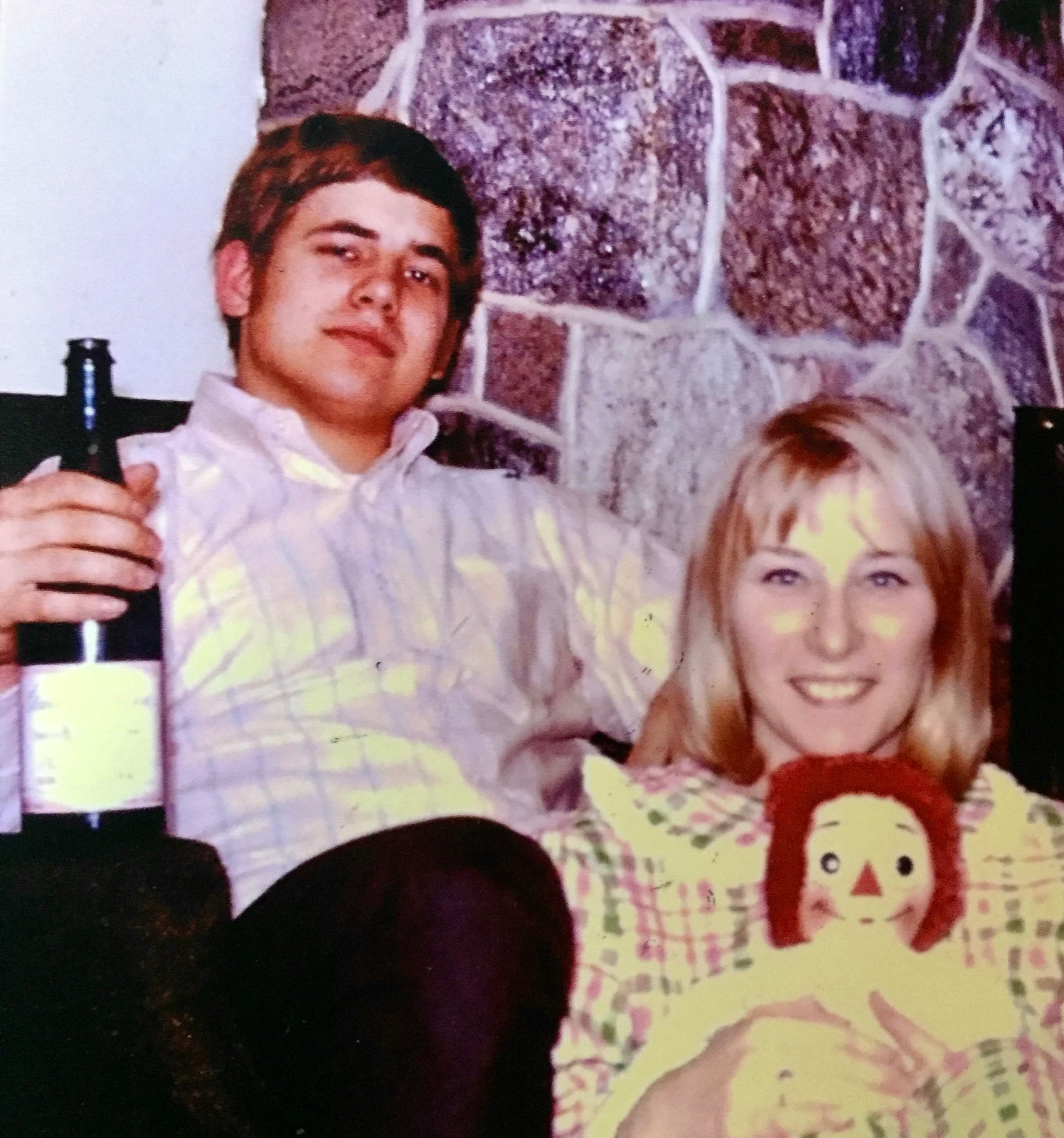
‘It was always rumoured the FBI attended class reunions’
Even as the years passed, members of the class of ’67 did not forget about Ted Conrad. At their regular reunions, a table would be set aside for him, and one year someone even created a cut-out.
At one of the reunions, a table was put out for FBI agents and their wives, given they knew their former classmate was still very much a wanted man.
Kathy Berkshire, 72, attended Lakewood High, and was friends with Conrad. A girl she shared a locker with, dated him for a while. Berkshire, who studied at Ohio State University, and later served on the Lakewood Chamber of Commerce, says Conrad was “a nice guy”.
“[He was] very quiet, very nice. He seemed like a good guy,” she says. She too heard the rumours of the FBI attending the reunions.
When it was revealed recently Conrad had been actually living in Boston and had died of cancer, former students chatted about him fondly on the class of ’67’s Facebook page.
One of them, Barbara Crumpton Hlavac Chilton, said she and others were able “to finally have closure to the mystery of where is Theodore Conrad”.
“If I remember correctly, there were rumours we had FBI agents at our 10th year and possibly 20th year class reunions,” she wrote.
“I know he was the topic of talk at our table at the 50th class reunion dinner dance. Thank you Russell, for sharing this info. So sorry it all had to end before you were able to see him or talk to him one last time.”
The FBI did not respond to questions.
Berkshire says she was struck by how her former classmate had been able to pull it off.
Speaking from Lakewood, she adds: “I was rather impressed by the fact he managed to keep a low profile. That’s what I find the most amazing – that he managed to stay hidden. And once again, he wasn’t that far away. I think he wasn’t even out of our time zone.”
As it was, Conrad was living in Lynnfield, a small town that is part of the greater Boston area.
He had moved to Boston, where much of The Thomas Crown Affair was filmed, soon after leaving Ohio, obtaining a new social security card under the name of Thomas Randele.
In 1982 he married a woman, Kathy Mahan, whom had met in the early 1970s, and they had a daughter, Ashley. He worked in several car dealerships and as a golf professional at a club south of the city.
Peter Elliott, the US Marshal for Ohio, whose late father John Elliott, also a US Marshal, never stopped thinking about the case, says authorities were tipped off by someone who drew their attention to an obituary for Thomas Randele was published in the Lynnfield News after his death in May 2021.
The authorities have declined to say who tipped them off, or how that person realised that obituary led to Conrad. Officials were able to compare a signature written by Thomas Randele in a 2014 bankruptcy filing, with Ted Conrad’s application to attend New England College in the late 60s. They were a match.
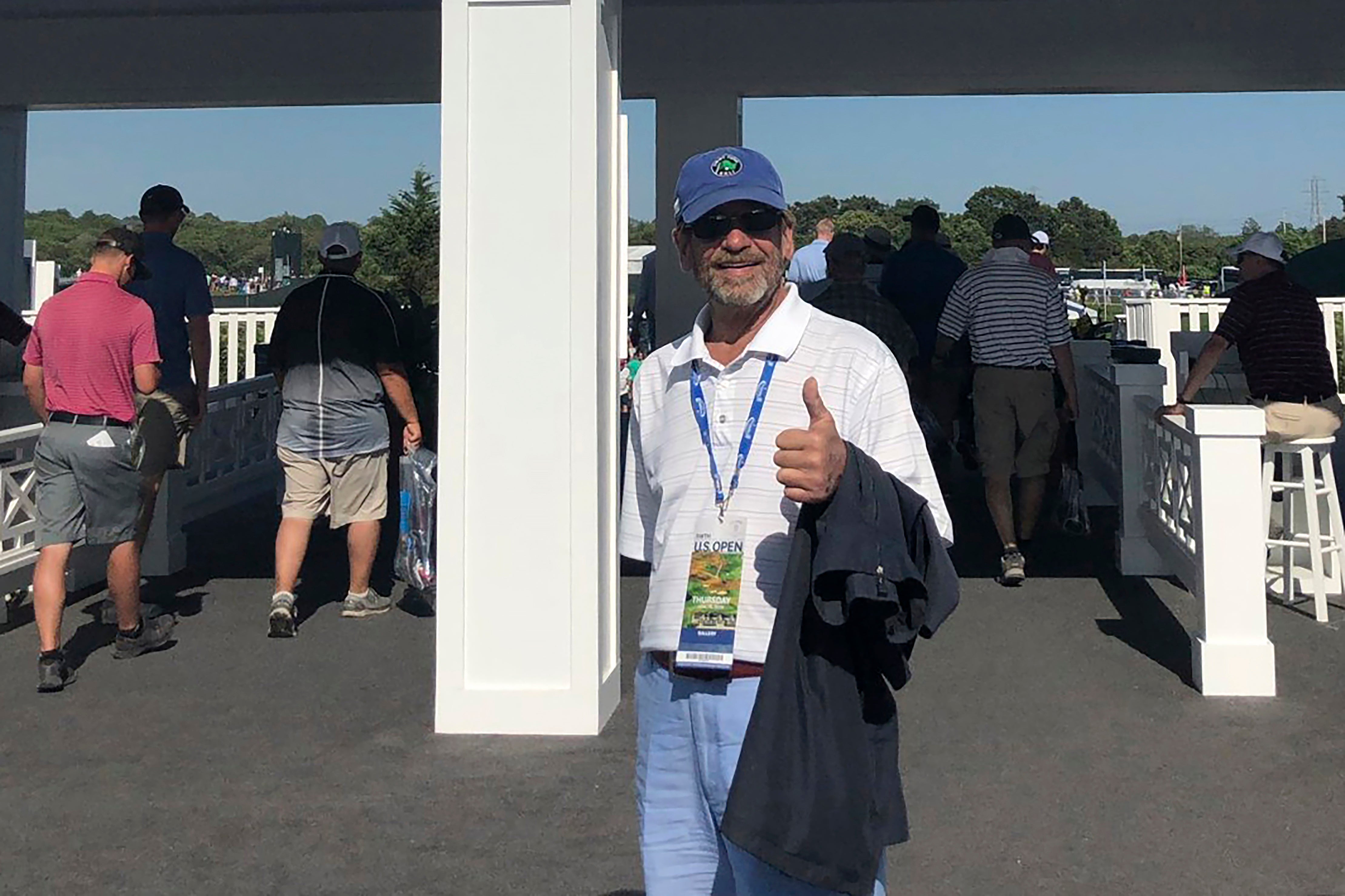
‘I don’t think your husband is who he said he was’
Armed with that, and other evidence, Elliott and his deputy drove to Lynnfield and knocked on the house where Randele had lived with his family.
“You’re not in trouble,” he says he told Randele’s widow. “I’m just here because I don’t think your husband is who he said he was.”
CJ Patti, a retired car dealer from Wakefield, Massachusetts, was among the circle of friends Conrad had in his “second” life, and also only found out the truth after his death.
He says Conrad, as Thomas Randele, started working for him in the 1990s. He left and then returned in 2004, and worked until he sold the Volvo dealership in 2019.
“He was a wonderful, polite guy,” says Patti. “He was just a great employee, a great guy to sit down and chit-chat with, and you never had any inkling of what he had done.”
He says he is in awe that the man from Ohio had been able to evade the authorities for so long,
“To be frank with you, I’d loved Tom Randele as a person and after I heard this story, I actually think I liked him more,” he says. “Because it was such an extraordinary story. It was so incredible.”
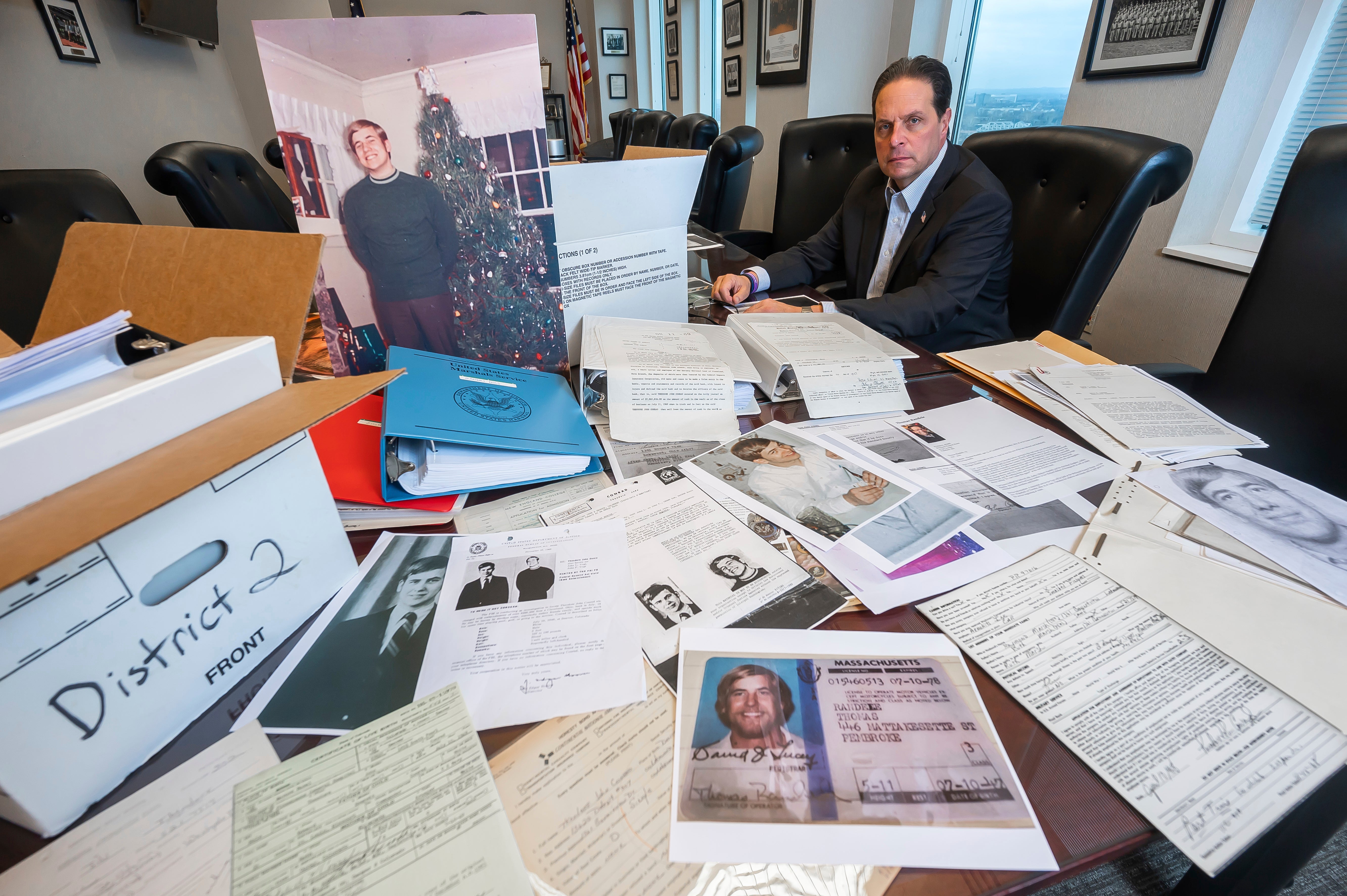
Another member of the same circle of friends, Bob Van Wert, says he sold cars with Conrad.
“I knew him for 10 years. Other guys I know, knew him him 20 years. Other guys knew him for 30 years. There’s a lot more to the story than has come out so far,” he says. “How did you get from Cleveland to Massachusetts? You would never think he could ever do anything like that.”
When he was told he was suffering from cancer, the news came out of the blue.
Van Wert, who along with Patti attended Conrad’s funeral, says he and other friends have talked about little since. “We’ve just been trying to figure it out.”
He says he thinks Conrad’s theft of the money was “something he did as a kid – it was like a teenage prank”.
Conrad’s widow’s, Kathy Mahan Randele, did not respond to enquiries from The Independent.
Russell Metcalf, Conrad’s best friend from high school, is among those keen to speak to her.
He says he never gave up hope Conrad would call him one day, and is sad he did not. He says, however, he believes his old friend would have presumed his phone was being monitored by the authorities.
He says for several years after the disappearance, even when he joined the US military, and would be stationed in different parts of the country, he would get calls from the FBI saying they wanted to see him, and ask him if he had heard from Conrad. The answer was always the same.
“I’d love to share [with her] some of the stories of when I knew him,” he says.
“All I’ve ever seen [written about him] is by writers who from talked to his ‘Thomas Randele’ friends. And the way they’ve talked about him, is the way I knew him. He was a kind and gentle guy. He was fun-loving.”



